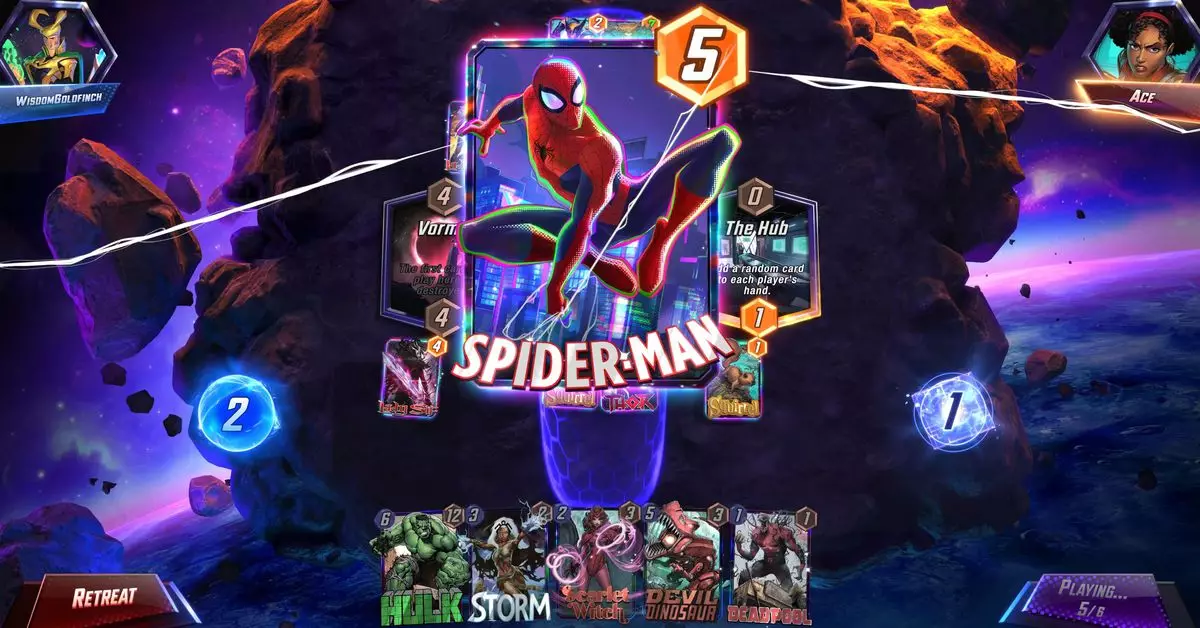In an era where digital entertainment is more intricately woven into the fabric of our daily lives, regulatory decisions can have profound impacts on the accessibility of games. A striking illustration of this phenomenon occurred recently when Marvel Snap, a popular card-based game, faced significant access restrictions in the U.S. due to new legislation that targeted TikTok and other applications owned by ByteDance. This ban, which took effect on Saturday night, unexpectedly extended to Marvel Snap since its publisher, Nuverse, is a subsidiary within the ByteDance family.
Such a scenario raises critical questions about the enforcement of policy and its ripple effects on the gaming landscape. Designed to scrutinize apps linked to foreign entities, particularly those from China, this sudden regulatory action inadvertently placed gamers and developers in a quandary of uncertainty and frustration. The incident highlights the fragile balance between national security interests and the right of consumers to access digital content. As players grappled with the abrupt disconnection, the circumstances emphasized how quickly environments can change in response to geopolitical tensions.
Developer Response and Future Strategies
In the aftermath of this disruption, Second Dinner, the development studio behind Marvel Snap, issued a public statement on Monday. It indicated that plans were underway to mitigate the risk of future disruptions by bringing “more services in-house” and exploring partnerships with alternative publishers. This proactive approach underscores a commitment not only to their player community but also to the need for corporate resilience in an unpredictable regulatory landscape.
The message conveyed by Second Dinner reflects an increasing awareness within the gaming industry about the necessity of strategic adaptability. By reassessing their business model and considering new publishing avenues, developers are signaling a readiness to pivot in response to external pressures. It also raises an essential discussion about the dependency on single-party publishers and the potential vulnerabilities these relationships can create.
The Community Reaction and Broader Implications
The reaction from the player community has been one of dismay but also of curiosity. The ongoing dialogue on platforms like Reddit has been rife with speculation about the future direction of Marvel Snap and the implications of this disruption for similar games. Players expressed concerns regarding the continued availability of mobile games in app stores, with the absence of Marvel Snap from both the App Store and Google Play further amplifying anxiety. Yet, the Steam version remains accessible—a detail many gamers regard as a potential lifeline.
This situation is emblematic of a broader trend affecting the gaming industry, where regulatory environments not only influence the operational strategies of developers but also shape user experience. As games increasingly intersect with global markets, the ability to navigate these external challenges will be crucial. As seen with TikTok, which managed to restore its service within hours, adaptability in the face of regulatory scrutiny is becoming a vital skill for tech companies.
The recent turmoil surrounding Marvel Snap is more than just a hiccup in the gaming world; it is a case study in the complex interplay of technology, legislation, and consumer rights. Moving forward, the industry’s ability to adapt will be critical, not just for individual titles, but for the gaming ecosystem as a whole.

